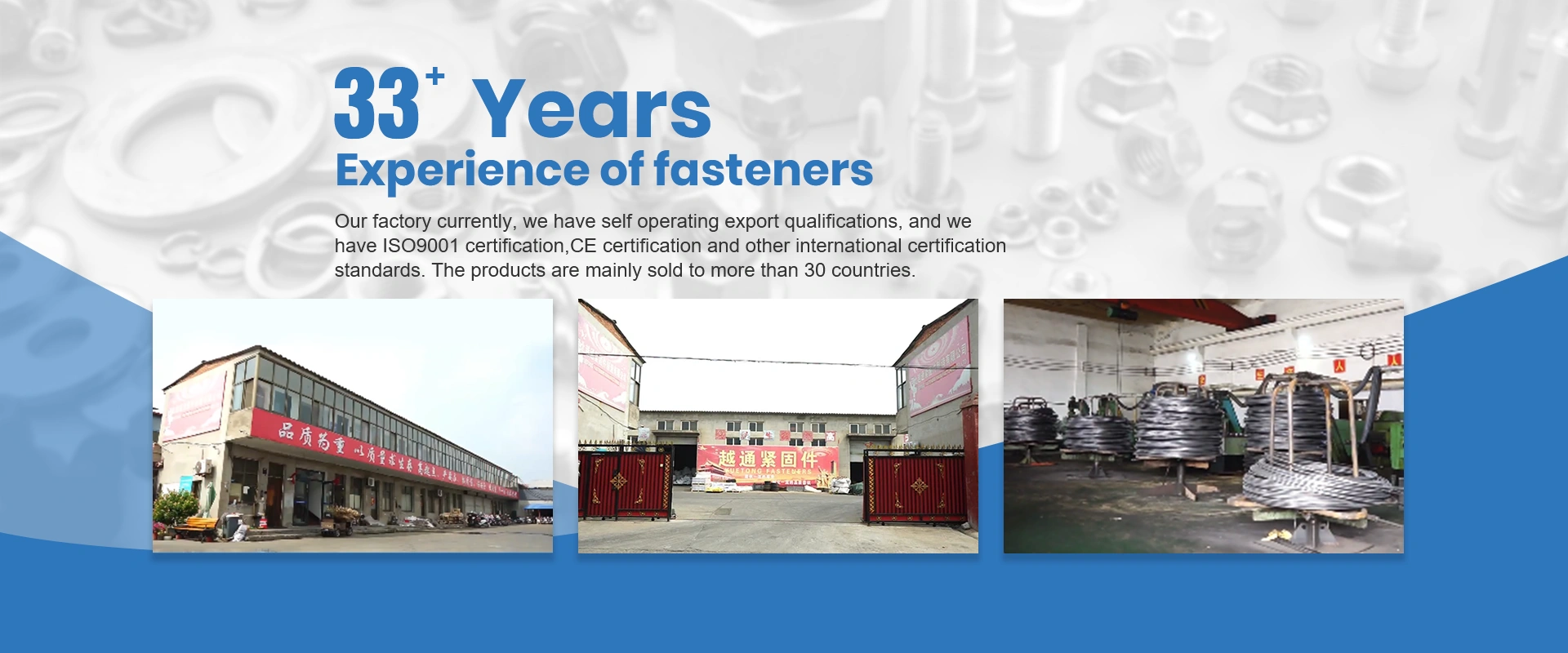Nov . 30, 2024 16:15 Back to list
Exploring the Applications and Benefits of M12 Nut in Various Industries
Understanding the M12 Nut A Comprehensive Overview
In the world of fasteners, nuts are essential components that facilitate the securing of two or more parts together. Among various types of nuts, the M12 nut is particularly popular due to its versatility and strength. This article aims to provide an in-depth understanding of the M12 nut, its specifications, applications, and advantages.
What is an M12 Nut?
The term “M12” refers to a metric bolt or screw that has a nominal diameter of 12 millimeters. Accordingly, an M12 nut is designed to fit this size of bolt. M12 nuts are typically associated with the metric thread system, following the ISO (International Organization for Standardization) standards. They generally have a thread pitch of 1.75 mm, though other pitch options exist, such as 1.5 mm and 2.0 mm for specific applications.
M12 nuts are classified into several types, including hex nuts, nylon-insert lock nuts, and flanged nuts. The hex nut, the most common type, has six sides for easy installation and tightening with a wrench. Meanwhile, lock nuts incorporate a nylon insert to prevent loosening due to vibrations, making them essential in applications where stability is critical.
Materials and Coatings
M12 nuts can be manufactured from various materials, including steel, stainless steel, brass, and plastic. Steel nuts are often used in construction and heavy machinery due to their high tensile strength. Stainless steel nuts are preferred in environments prone to corrosion, such as marine or chemical applications. Brass nuts offer excellent conductivity and are commonly utilized in electrical applications.
Furthermore, M12 nuts may have different coatings to enhance their properties. Common coatings include zinc plating, which provides corrosion resistance, and black oxide, which improves aesthetics while also offering some protection against rust.
Applications of M12 Nuts
The applications of M12 nuts are extensive and span multiple industries
m12 nut

1. Construction In construction projects, M12 nuts are often used with bolts to secure structural components, such as beams and frames.
2. Automotive In the automotive industry, M12 nuts are integral in assembling various parts, including engines and body components, ensuring they remain securely fastened under vibration and stress.
3. Manufacturing M12 nuts are frequently used in manufacturing settings, particularly in machinery and equipment assembly, where reliable fastening is crucial for optimal operation.
4. Electronics In electronic devices, M12 nuts may be used as mounting hardware for circuit boards and housings, ensuring that components remain securely in place.
Advantages of M12 Nuts
One of the primary advantages of M12 nuts is their standardization. Being part of the metric system, they allow for easier calculations and compatibility in international projects. Their strength and reliability make them suitable for various applications, from light-duty tasks to heavy industrial uses.
Moreover, the availability of different materials and coatings means that users can choose the right M12 nut for their specific environment and needs. The presence of lock nuts further enhances their utility, providing additional security against unintentional loosening.
Conclusion
In conclusion, the M12 nut is a vital component in many fastening applications across diverse industries. Its compatibility with M12 bolts, combined with the variety of materials and types available, makes it an ideal solution for securing parts in both simple and complex assemblies. As industries continue to evolve and demand higher performance, understanding the importance and functionality of components like the M12 nut remains crucial for engineers, manufacturers, and DIY enthusiasts alike. Whether you're involved in construction, automotive work, or electronics, choosing the right nut can significantly impact the integrity and longevity of your projects.


